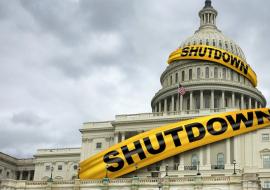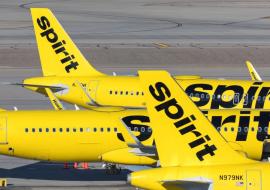TUI Kicks off 2004 in the Red
TUI, Europe’s number-one tour operator, has teed off the ongoing year with heavy losses, the company’s President Michael Frenzel informed this week in Hanover.
Stacked up against the first three months of 2003, the group’s first-quarter losses tallied €149 million ($175 million), up a gaping 50 percent, Mr. Frenzel continued.
One of the main reasons behind this downfall in the beginning of 2004 had to do with the fact that TUI netted no additional buyout gains as it did happen in 2003 before company sold some of its segments.
However, Mr. Frenzel is upbeat about the remaining of the year because –he says- travel reservations and hotel bookings are on a roll. “Germans are back in wanderlust’s land,” he exclaimed. TUI’s President and CEO hopes to rake in a 3 percent growth during the oncoming summertime season.
The stock markets had a positive reaction to Mr. Frenzel’s remarks and TUI closed with three-point gains at €17.44 a share, momentarily taking the lead on the DAX index in the German stock exchange.
TUI’s bad first-quarter numbers –before deduction of taxes, interests and paybacks- closed at €209 million ($246 million), compared to €88 million ($103 million) back in 2003.
In the first three months of 2004, TUI’s sales peaked €3.5 billion ($4.2 million), down 6.8 percent from last year’s first quarter. Part of the blame for that decline –Mr. Frenzel went on to say- is on the absence of AMC, the company’s affiliated marketing firm that was sold in 2003.
At the same time, TUI’s debt shrank by €100 million ($118 million) and is now hovering around €3.7 billion ($4.3 million).
As far as tourism and travel are concerned, TUI’s revenues were up 5 percent to €2.3 billion ($2.7 billion). Sales prior to the deduction of taxes, interests and paybacks skidded 27 percent to a meager €185 million.
Mr. Frenzel noted that in the field of travel and tourism, TUI is still enduring the fallout of last year’s tribulations: the war in Iraq, the SARS outbreak in Asia and the fear of terrorist attacks.














